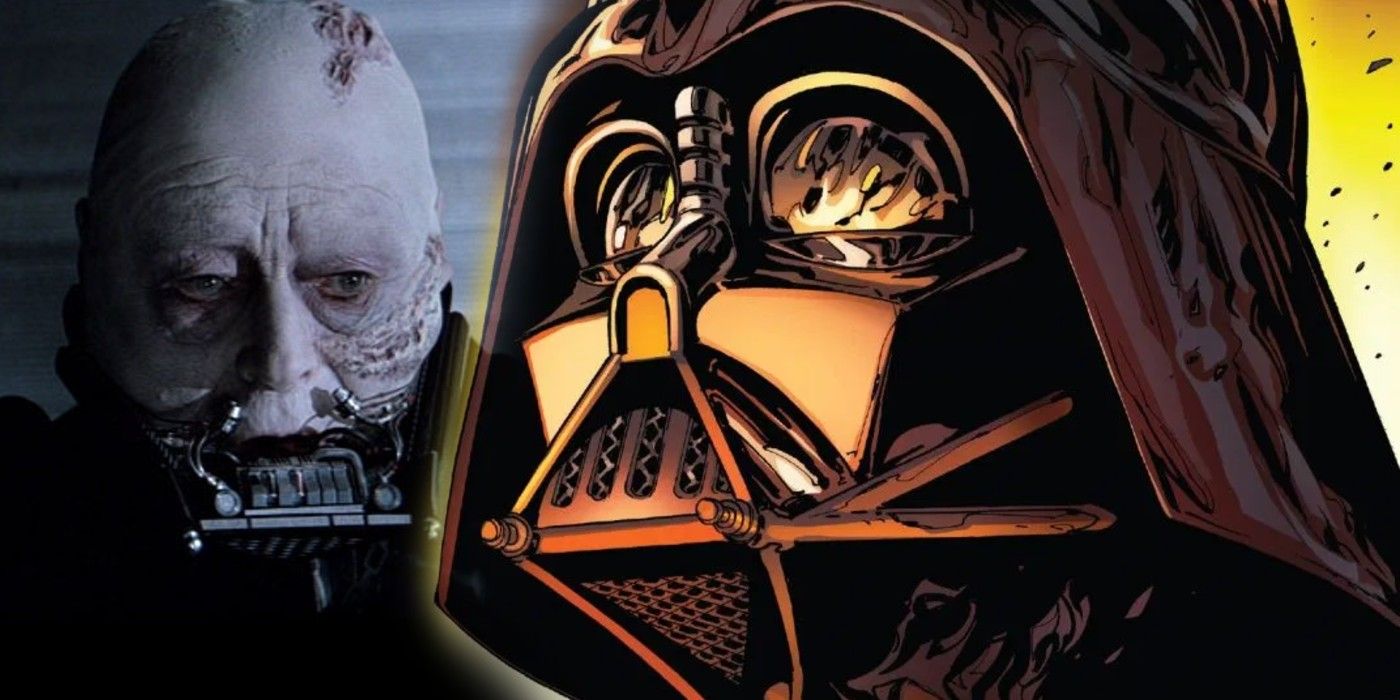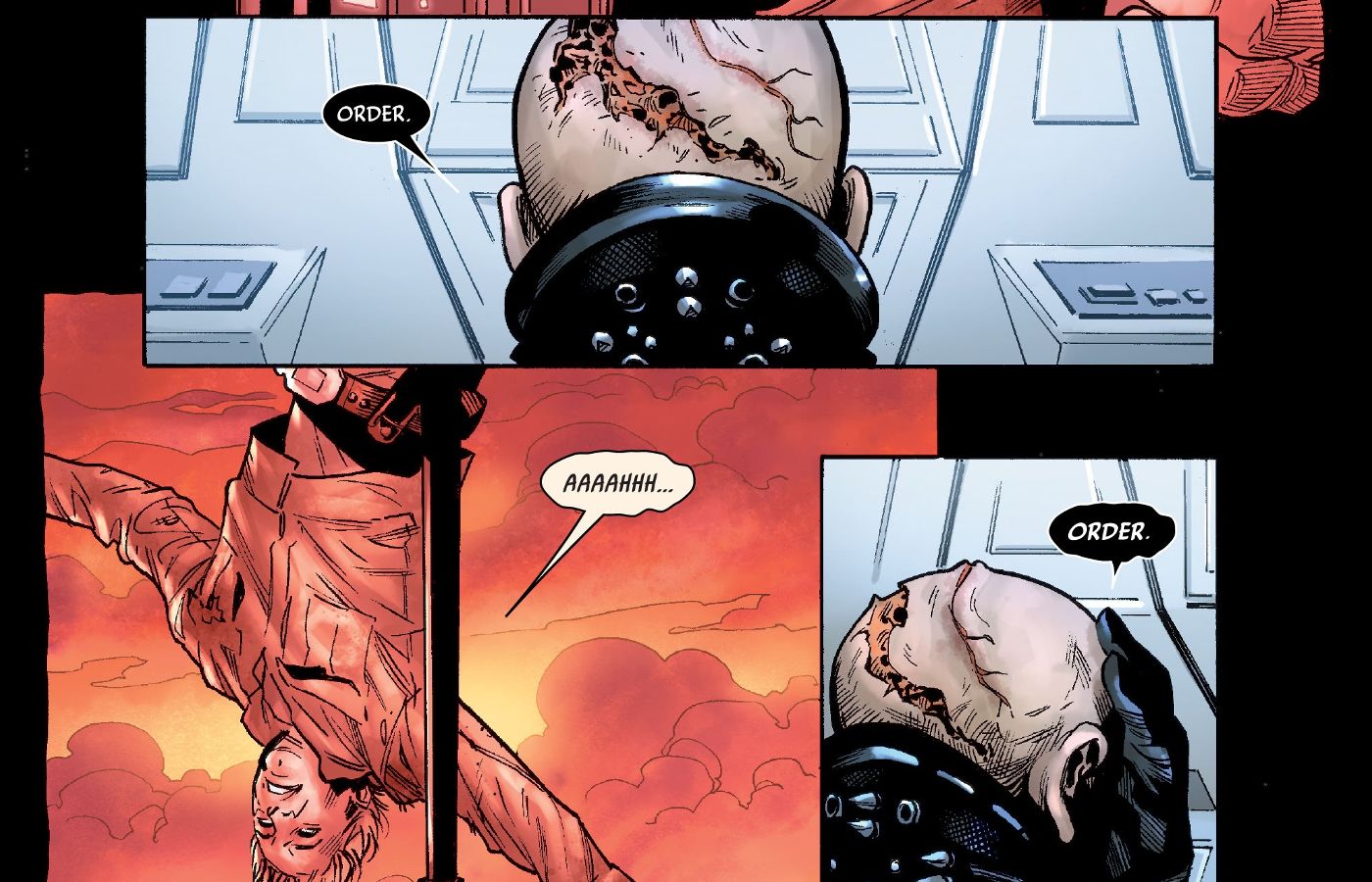Warning: contains spoilers for Darth Vader #18
A new Star Wars comic is adding new dimensions to Darth Vader, perhaps changing the way that Sith lord will be perceived forever. The man once known as Anakin Skywalker showed his obsession with galactic order and, conversely, an aversion for chaos that comes as new to the character, but also raises some big questions about his final actions before his death in Return of the Jedi.
Issue #18 of Darth Vader from Greg Pak and Leonard Kirk opens with Vader reflecting on his past confrontations with his son Luke (shown at the end of The Empire Strikes Back) and with his master Palpatine (seen in issue #6 of Darth Vader). He believes that the Emperor has brought only chaos to the galaxy, and he wants to restore order, "with or without my son". Up until now, the series has shown Vader being motivated only by sorrow at first (when he was investigating the final fate of his lost love Padme), and then by a desire for power, in order to rise above the Emperor and be finally free to determine his own fate. This fascination with order is then a completely new avenue for the character, and it can be considered as a true identity crisis.
The new issue raises important questions relating to what fans know about Vader's future. In Return of the Jedi, Vader made his final choice between Emperor Palpatine and his son Luke , but what was that choice really about, in terms of ideals? If Palpatine represented power and all the negative feelings usually associated with the Dark Side, it made sense that Vader gave it all up in favor of his son’s safety, in one final act of redemption. But if order is what Vader truly desired, then his choice was made believing that Luke, and by extension the destruction of the Empire, was the best chance for galactic order.
Considering what fans saw in the sequels trilogy, with the galaxy once again thrown into chaos by the raise of the First Order, it seems that Vader was wrong in his assessment. Another option could be that he knew that killing the Emperor would be a step away from his desired order, and so made yet another selfish choice to plunge the galaxy into chaos, to ensure that his son survived.
A Darth Vader that is not motivated by anger and hate, but by an ideal (for as much twisted and ideal as "galactic order" can be) is definitively a new concept, one that Star Wars fans will have to keep in mind in the future when assessing Vader's final action before his death in Return of the Jedi.


